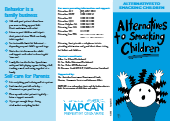The Psychology Book by DK: Big Ideas Simply Explained
The Psychology Book by DK is part of the acclaimed “Big Ideas Simply Explained” series and offers a clear, accessible guide to the history and theories of psychology. It introduces key thinkers such as Freud, Skinner, and Piaget, and covers major schools of thought including behaviourism, psychoanalysis, cognitive psychology, and social psychology. Organised in a visually engaging format, it uses timelines, diagrams, and summaries to break down complex ideas into simple explanations.



Introduction to Research Methods in Psychology (3rd Edition)
The book by Dennis Howitt and Duncan Cramer is a clear and practical guide to conducting psychological research. It covers both quantitative and qualitative methods, including designing studies, collecting and analysing data, and writing reports. Aimed at undergraduate students, the book includes real examples, ethical guidance, and support for planning research projects, making it an essential resource for anyone beginning their research journey in psychology.

Mindset: The New Psychology of Success by Carol S. Dweck
Mindset: The New Psychology of Success by Carol S. Dweck, Ph.D., is a widely acclaimed book that explores how our beliefs about our abilities shape our lives. Dweck introduces the concepts of the fixed mindset—the belief that intelligence and talent are static—and the growth mindset—the belief that abilities can be developed through effort, learning, and persistence. Through research and real-life examples from education, business, sports, and relationships, Dweck shows how adopting a growth mindset can lead to greater motivation, resilience, and success. This book is an inspiring and practical guide for anyone looking to improve performance, overcome setbacks, and reach their full potential.

Educational Psychology (13th Global Edition) by Anita Woolfolk
Educational Psychology by Anita Woolfolk is a widely used textbook that explores how psychological principles can be applied to teaching and learning. This thirteenth edition offers a practical, research-based approach to understanding student development, learning processes, motivation, and classroom management. It combines real-life classroom examples, case studies, and teaching strategies with up-to-date research, including insights from neuroscience, diversity, and technology in education. With clear writing and a focus on practical application, it is an essential resource for education students and professionals seeking to create inclusive and effective learning environments.

The Psychology of Men and Masculinities (2017)
The Psychology of Men and Masculinities is a comprehensive and scholarly book that explores how societal expectations and gender norms shape the mental health, identity, and behaviour of men. Edited by Ronald F. Levant and Y. Joel Wong, this volume brings together leading researchers and practitioners to examine theories such as the Gender Role Strain Paradigm, Masculinity Ideologies, and Gender Role Conflict. It also covers topics like men’s physical and mental health, help-seeking behaviour, fatherhood, body image, and the experiences of minority groups, including LGBTQ+ and racial or ethnic minorities.
This book is ideal for psychologists, educators, students, and professionals interested in understanding how masculinity influences wellbeing, relationships, and societal roles. Grounded in both theory and real-world application, it challenges traditional views of masculinity and promotes more inclusive and healthier models for male identity and behaviour.

50 Great Myths of Popular Psychology
50 Great Myths of Popular Psychology by Scott O. Lilienfeld, Steven Jay Lynn, John Ruscio, and Barry L. Beyerstein is an engaging and evidence-based book that debunks widely held misconceptions about human behaviour. It explores myths that are often repeated in everyday life, the media, and even in classrooms—such as the idea that people only use 10% of their brains, or that opposites attract in relationships. Each chapter examines a group of related myths, explains why they persist, and presents the psychological research that disproves them. Designed to encourage critical thinking, this book helps readers separate fact from fiction and better understand how psychology really works. It is an ideal read for students, educators, and anyone curious about the truth behind common psychological beliefs.

The Handbook of Forensic Psychology
The Handbook of Forensic Psychology, edited by Irving B. Weiner and Randy K. Otto, is a comprehensive and authoritative reference covering the wide-ranging application of psychology within legal and criminal justice settings. Now in its fourth edition, the book offers in-depth guidance on both theory and practice, addressing key areas such as assessments in civil and criminal proceedings, ethical and legal considerations, expert testimony, jury decision-making, correctional treatment, and risk assessment. Designed for psychologists, legal professionals, students, and researchers, it brings together contributions from leading experts in the field and reflects current research, legal developments, and evolving practices. This edition continues to be a vital resource for anyone involved in forensic psychology, from court evaluations and law enforcement to corrections and rehabilitation.









